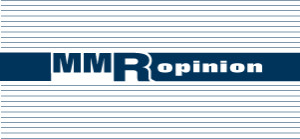The Supreme Court’s decision in Rutledge v. PCMA to uphold Arkansas’ right to regulate pharmacy benefits managers signals a turning point in the protracted battle to make the relationship between PBMs and retail pharmacies more equitable. In a unanimous ruling (Justice Amy Coney Barrett did not hear the case), the court found that an Arkansas statue enacted in 2015, which requires PBMs to reimburse pharmacies at a rate that equals or exceeds their wholesale costs, is valid.
 The Pharmaceutical Care Management Association, the trade group that represents the nation’s 11 biggest PBMs, contended that the Arkansas law was in conflict with the federal Employee Retirement Income Security Act of 1974, which established minimum standards for retirement and health plans in the private sector, and should be preempted. After succeeding in the lower federal courts, PCMA’s position was rejected by the Supreme Court.
The Pharmaceutical Care Management Association, the trade group that represents the nation’s 11 biggest PBMs, contended that the Arkansas law was in conflict with the federal Employee Retirement Income Security Act of 1974, which established minimum standards for retirement and health plans in the private sector, and should be preempted. After succeeding in the lower federal courts, PCMA’s position was rejected by the Supreme Court.
Pharmacy advocates, who lent their support to Arkansas Attorney General Leslie Rutledge as the case moved through the judicial process, hailed the ruling as a landmark. They argued that if the Arkansas statute and similar laws that have been passed in 40 other states were invalidated, it would be increasingly difficult for pharmacies to survive. In its response to the Supreme Court’s decision, a coalition of pharmacy groups, including NCPA, APhA, the National Association of State Pharmacy Associations and the Arkansas Pharmacists Association, pointed out that more than 16% of independents in rural areas closed for good in recent years, further limiting access to health care in areas where it is already in short supply.
While expressing its disappointment with the high court’s action, PCMA raised the specter of unintended consequences: “As states across the country consider this outcome, we would encourage they proceed with caution and avoid any regulations around prescription drug benefits that will result in higher health care costs for consumers and employers.”
Everyone wants to limit spending, but PCMA should appreciate the fact that, when properly used, prescription medications are the most cost-effective component of health care. More fundamentally, they need to understand that pharmacies, like PBMs, are businesses and must turn a profit if they are to remain viable and continue meeting the needs of patients.




You must be logged in to post a comment Login